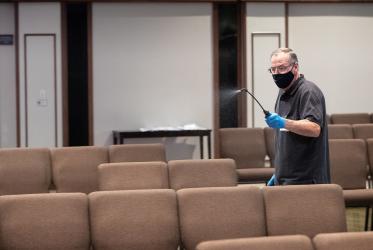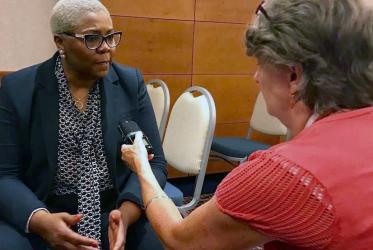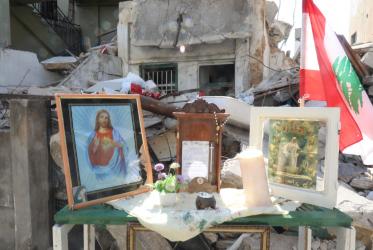Displaying 1 - 13 of 13
Bible study addresses church identity in pandemic
17 September 2020
Latest gun violence in US poses challenges for churches
05 August 2019
Casely Essamuah, ‘working for the greater glory of God’
26 October 2018
How can you help refugees?
11 October 2018
Rev. Traci Blackmon: people of faith must not be silent
21 September 2018
Faith on the fast-track - for children living with HIV
13 September 2017
Religion: Way of war or path to peace?
30 June 2016
Religious leaders as agents of peace in the Americas
02 March 2016
Ralph C. Young, veteran of the ecumenical movement, dies at 100
02 December 2015
Killer Robots? Moral questions pervade UN conference
23 April 2015








